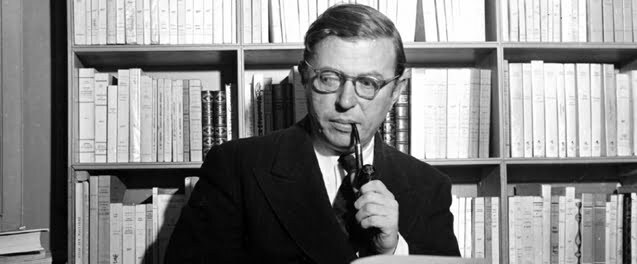
Jean Paul Sartre’s view of Hell
On this day in 1944 Jean Paul Sartre’s Existentialist play Huis Clos (‘Dead End’) was first performed in Paris.
It was a tense time already in France – the Normandy invasion was only ten days away. The play takes place in Hell, introducing three deceased characters who realise they are being punished by being locked into a room together for eternity. Sartre famously refused the Nobel Prize saying he did not want his name to become a ‘brand’, but later regretted it, saying that he could have donated the prize money to a deserving cause.
Though sometimes ridiculed today, Existentialism is still a meaningful response to the unanswered ‘big questions’ that always remain, such as ‘what is the meaning to life?’ or indeed, ‘is there a meaning to life?’ No doubt we will continue the debate, endlessly, as Sartre’s characters realise they must do in Huis Clos, echoing the play’s final line: ‘Continuons?’ (Shall we get on with it?). Here is a poem by W H Davies who didn’t have an answer either, but kept things simple, Leisure:
What is this life if, full of care,
We have no time to stand and stare?—
No time to stand beneath the boughs,
And stare as long as sheep and cows:
No time to see, when woods we pass,
Where squirrels hide their nuts in grass:1
No time to see, in broad daylight,
Streams full of stars, like skies at night:
No time to turn at Beauty’s glance,
And watch her feet, how they can dance:
No time to wait till her mouth can
Enrich that smile her eyes began?
A poor life this if, full of care,
We have no time to stand and stare.
Today I will be grateful for the things I have and not worry about the big questions. I will try to keep it simple.
